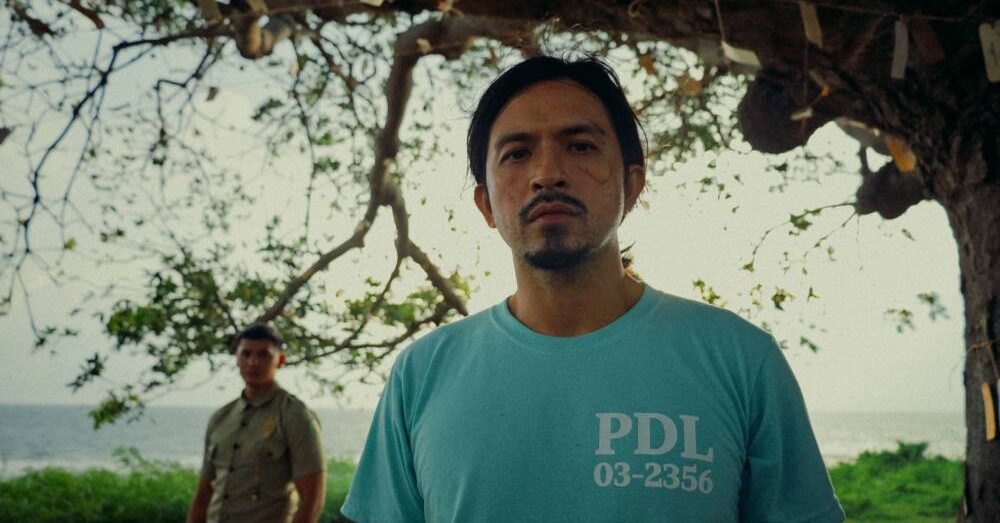“WE’RE bad guys, it’s what we do,” quips the psychotic Harley Quinn (the charismatic Margot Robbie) during a scene late in “Suicide Squad.” What it is exactly bad guys do, and what exactly a bad guy is; these are the questions raised while hell is raised in this film, the third in the DC Extended Universe (DCEU) after 2013’s “Man of Steel” and “Batman v Superman: Dawn of Justice.”
Like those films, “Suicide Squad” is a full-screen introduction, this time to the aforementioned Suicide Squad—officially known as Task Force X—which sends villains to do missions for good, a staple favorite among DC’s titles since John Ostrander came up with it in 1987. This idea—essentially 1967’s “The Dirty Dozen” with superpowers—is immediately both appealing and transgressive at the same time.
Directed and adapted by David Ayer (2014’s “Fury”), the film begins after the apparent death of Superman at the end of “Batman v Superman.” Government covert operations expert Amanda Waller (a steely Viola Davis) puts together “the worst of the worst” at Belle Reve Penitentiary in Louisiana—incarcerated criminals and captive metahumans, expendable assets who are easily disavowed—to carry out missions beyond the capability of normal operatives, forcing them to do so with promises or the threat of death through a micro-bomb in their necks. These missions, potentially against evil metahumans—are also extremely dangerous, hence the “suicide squad” nickname.
The assembled team was to include the unhinged Quinn, the extremely professional hitman Deadshot (Will Smith, yes, him), dual-personality magician Enchantress (Cara Delavingne, yes, her), pyrokinetic El Diablo (Jay Hernandez), crocodile man King Croc (Adewale Akinnuoye-Agbaje), Australian baddie Captain Boomerang (Jai Courtney) and knots expert Slipknot (Adam Beach). Leading the team, the man with his hand on the kill switch, is Col. Rick Flag (“The Killing’s” Joel Kinnaman).
Midway City falls to a superhuman threat. When the team is sent into action, it becomes clear that the villains are not being told everything. The Squad must overcome the team dynamic problems that come with being, you know, bad guys, as well as working their way to the truth. True to its comic book origins, not everyone survives the mission.
“Suicide Squad” briskly goes through its paces, noticeably pausing to lay out the origin stories of most of its individual members before propelling itself to the expected winner-take-all climax. The shifts feels like Ayer’s using a defibrillator on the audience. In fact, the most surprising thing about “Suicide Squad” is how accessible and conventional it is. It’s an efficient, no-nonsense action film with spots of humor, violent but never mindlessly so (it’s rated R-13). It’s entertaining even for audiences who have yet to see “Man of Steel” or “Batman v Superman.”

This is exemplified by the still enjoyable but relatively restrained performances of Robbie as Quinn and Jared Leto as the Joker, her “Puddin,” her partner in crime and other craziness. The two are sufficiently unpredictable and far out without becoming disturbing. The origin of their romance runs alongside the movie’s main plot. Robbie, in particular, succeeds in being winningly wacky and wicked without overdoing it; she’s got a solo Harley Quinn movie coming up. With limited screen time, Leto gets the laugh dead on and his take on the Joker is very faithful to the New 52 version of the character.
With a cast this size, some characters will get more story and significance than others. Ultimately, “Suicide Squad” is thematically and dramatically more hinged on Smith’s conflicted take on Deadshot. An assassin who does not kill women or children, Deadshot is doing his best to get back to his daughter. Smith’s unexpectedly nuanced take on the hitman gives “Suicide Squad” its dramatic weight. To use a hackneyed hitman reference, Smith hits it right on target. Robbie and Smith (it’s basically their movie) display good chemistry here (they’ve worked together before, on 2015’s “Focus”). This is also true when the Squad is finally together and trying to get their jobs done.

It also fits well with Ayer’s discussion what makes a villain—and conversely, a hero—when the good guys act in a way that seems anything but good. There’s more than a little bit of 2001’s “Training Day” (which Ayer wrote) in “Suicide Squad,” a film that is really about anti-heroes and their place in the DCEU.
It’s important to note that, as the third film in the DCEU, “Suicide Squad” is adding to the world-building by Zack Snyder and company with the members of the Squad and the introduction of Midway City, another metahuman-heavy DC locale. “Suicide Squad” also is clearly leading the way to 2017’s Snyder’s “Justice League” film with both references and cameos, thus helping grow the nascent full-screen DC universe.
By striving to reach beyond the audience of the comic book property, “Suicide Squad” turns out to be a much brighter and optimistic movie than it first seems. It’s a “Suicide Squad” for everybody. “Don’t forget, we’re the bad guys,” Deadshot reminds us, and, as with many of the elements making up “Suicide Squad,” that’s a good thing.
Warner Bros.’ “Suicide Squad” opens in cinemas on August 4.















































